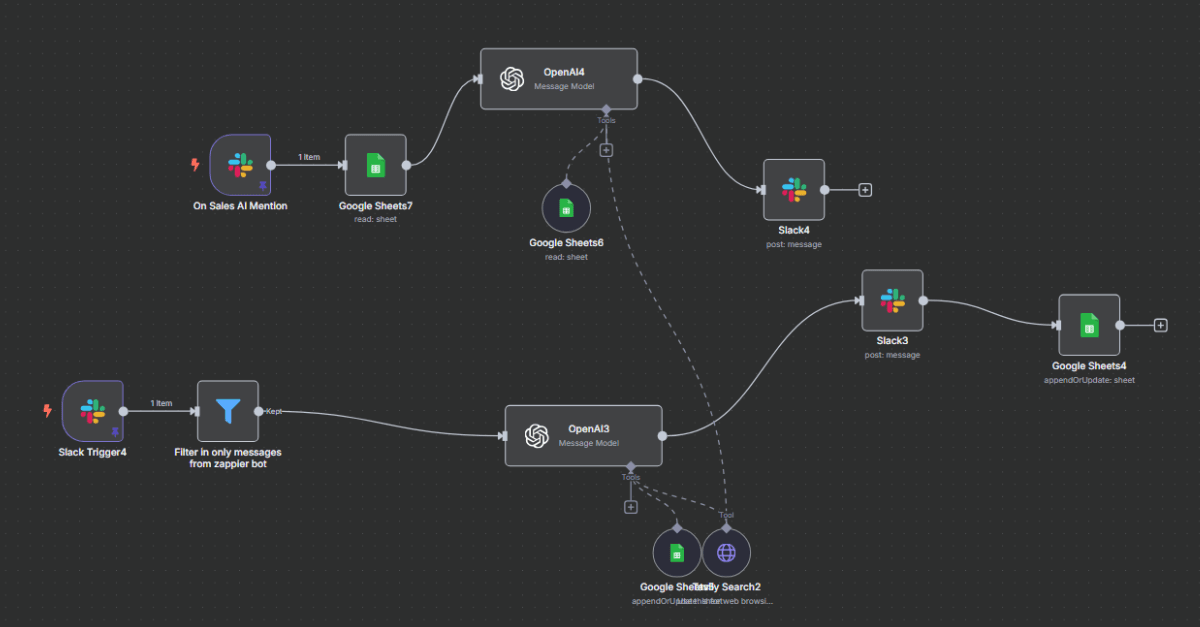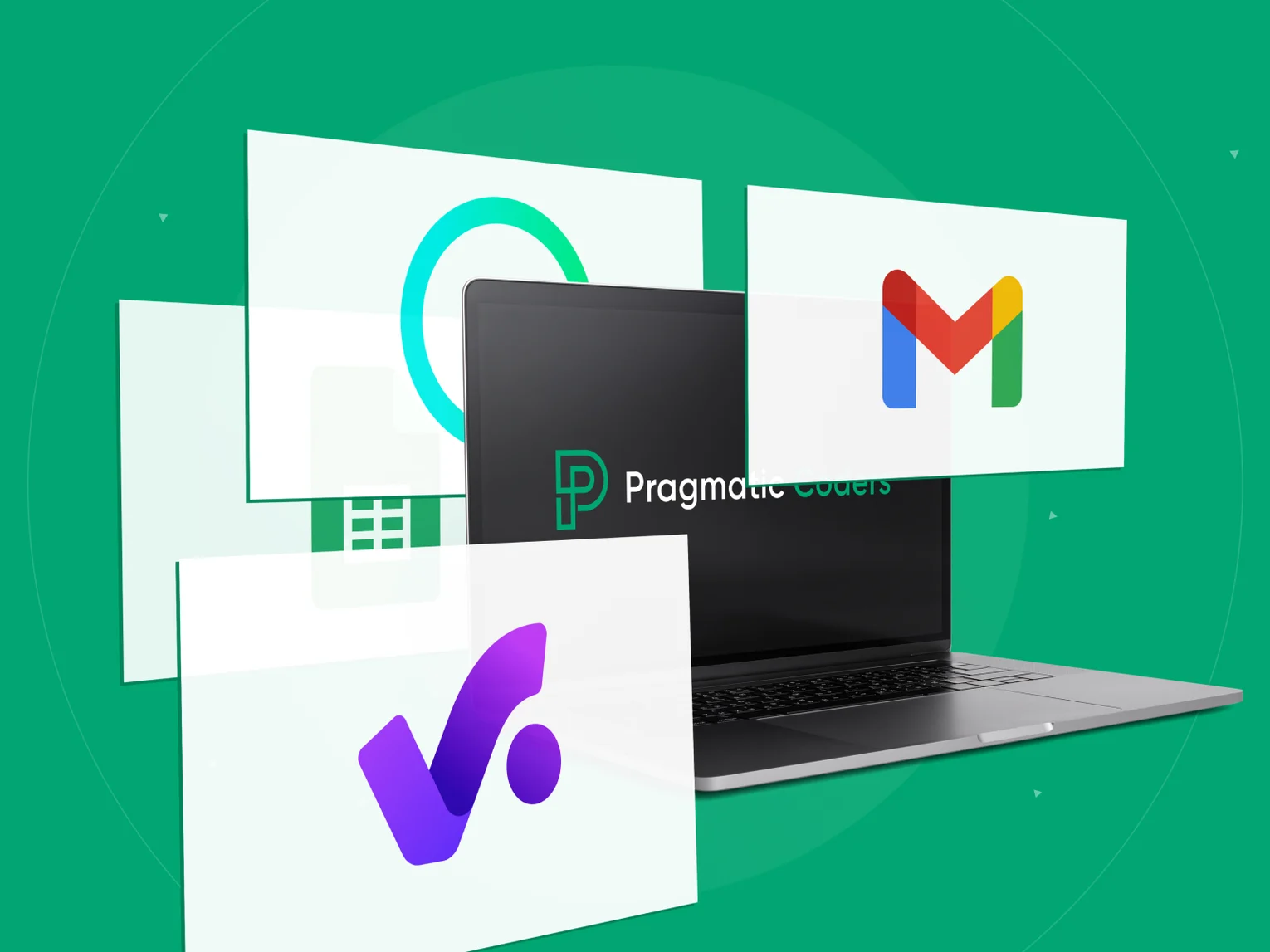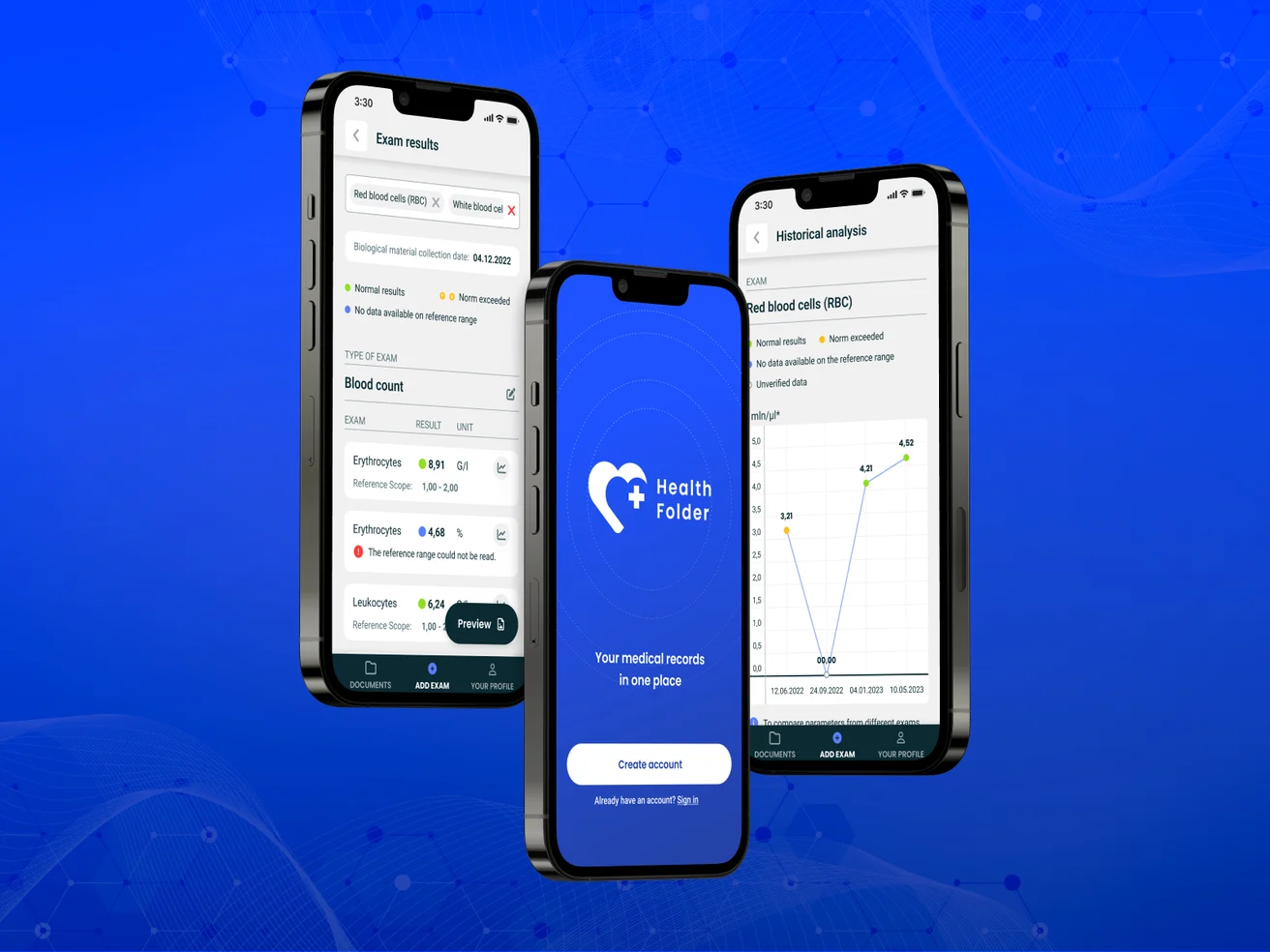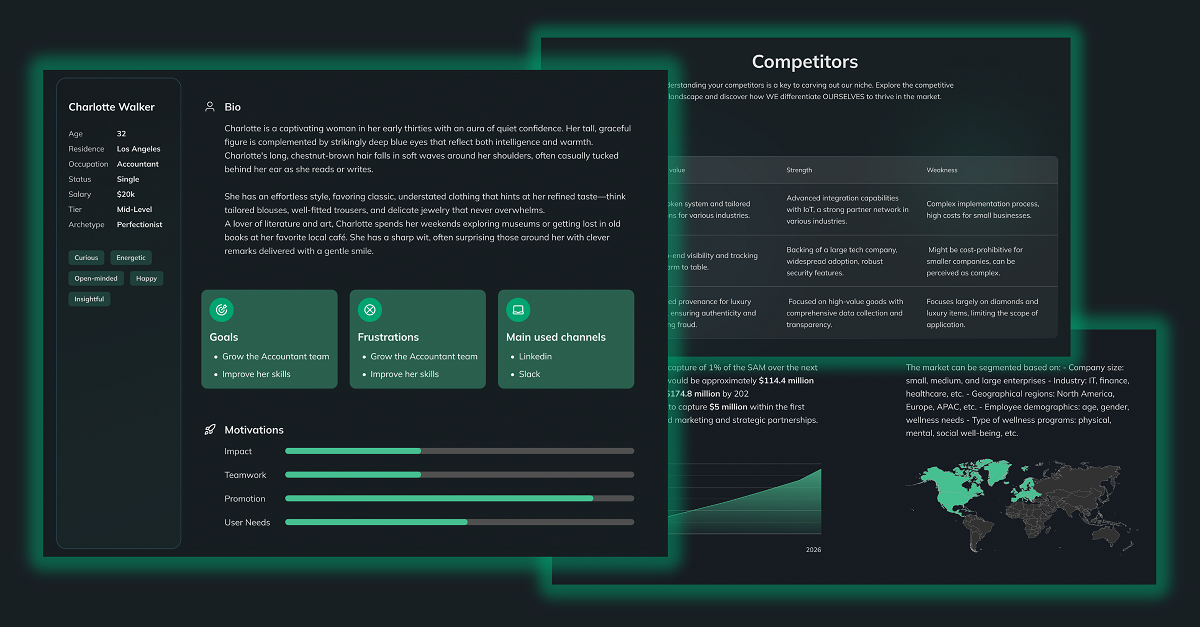AI Software Development Services
Empower your business with AI-driven software solutions built for real market impact.
AI Agent Development
AI agents tailored to your needs. Automate processes, improve efficiency, and reduce costs. Scalable, secure, and built for your business.
AI Integration Services
Boost your business with expert AI integration services. Automate tasks, increase productivity, adopt generative AI.

AI Data Solutions
Deploy AI with confidence. Our data solutions ensure security, scalability, and real ROI for businesses ready to innovate.
Vibe Coding Rescue
Your Vibe-Coded app took off? Well done! Now it’s time to make it reliable, scalable, and secure.
Our AI-Related Software Services
We offer a range of AI software development services to meet different needs. Whether you’re looking to build an AI-powered product from scratch or enhance your existing systems with AI, we’ve got you covered. Here’s a list of our core AI services, each led by specialists and backed by Pragmatic Coders’ business-first approach.
AI Agent Development
Autonomous AI agents tailored to your needs. We build AI agents that can automate processes, make intelligent decisions, and interact with users or other systems with minimal human intervention. Our AI agents are designed to improve efficiency and reduce costs while being scalable, secure, and built for your business.
AI Integration
Seamless AI integration for your existing systems. If you have software or workflows that could be smarter, our integration services are the answer. We boost your business with expert AI integration services – embedding AI capabilities into your current products or processes to automate tasks, increase productivity, and even adopt generative AI where it fits.
Data Solutions for AI
Unlock the power of your data for AI. Great AI solutions require great data. We help businesses extract, clean, and secure the right data to fuel AI models. Need to fine-tune a pre-trained model with proprietary data? Train a model from scratch? Or implement advanced techniques like Retrieval-Augmented Generation (RAG)? Our data solutions service prepares your data and systems for AI. We also ensure privacy and compliance.
Custom AI Software Development
End-to-end development of AI-powered applications. Have a visionary AI product idea or looking to add AI-driven features to your software? We can make it happen. We can build your AI app from scratch or implement AI solutions into your existing product, taking care of everything from the initial concept to final deployment. This service is perfect for companies seeking a full-cycle development partner for an AI solution that doesn’t fit into a single category. We assemble a cross-functional team (AI engineers, developers, UX designers, product managers) to design and develop a bespoke AI software solution aligned with your objectives.
Explore Successful AI Software We’ve Delivered
See how our AI solutions are solving real business challenges
- AI Financial Feeds
- AI-Based Care Platform
- Hiring Automation
- Sales AI
- Accounting Automation
- Health Folder
- Market Insights AI
AI Financial Feeds: Real-time sentiment analysis for financial news
Read the case study
Delivering a novel ethnic-aware patient care platform with AI & data science
Read the case study
Automating the tech hiring process with AI-powered candidate evaluations
Read the case study
Slack automation that helps us qualify leads
Read the Case Study
Saving 2 hours daily: efficient AI & low-code accounting automation
Read the case study
Health Folder: Your AI-based digital medical documentation folder
Read the case study
Learn how we built Market Insights AI to deliver fast, accurate market research: competitor analysis, user personas, and market sizes.
Read the case studyHow AI Will Benefit Your Product
An impressive 72% of companies have made AI a strategic priority, with nearly half of technology leaders confirming that AI is fully embedded into their core operations. Implementing artificial intelligence in product development is rapidly becoming an industry standard. Here’s why:
Custom-fit
AI examines user data to provide personalized & engaging experiences.
Improved accuracy
AI analyzes data with greater accuracy and speed than humans.
Increased efficiency
AI automates repetitive tasks, saving time and reducing costs.
Use Cases
AI can drive tangible results across industries. Here are a few use cases that illustrate how our AI solutions deliver business value:
Customer Service Agent
Deploy an AI-driven customer service agent that actively solves customers' problems. By integrating with your backend systems, the agent diagnoses issues, initiates corrective actions (like scheduling repairs or processing refunds), and even follows up to ensure resolution. This comprehensive solution reduces resolution times and boosts customer satisfaction, all while operating 24/7.
AI-Powered Market Research Platform
Build a custom AI application that rapidly analyzes market data, competitor trends, and customer feedback. This tool delivers actionable insights in minutes rather than weeks, empowering businesses to make faster, data-driven decisions and maintain a competitive edge.
Autonomous Accounting Assistant
Utilize an AI agent to automate routine finance tasks such as invoice processing and data entry. This solution minimizes human error and saves valuable time each day, allowing your finance team to focus on strategic initiatives and complex analyses.
Fraud Detection System
Leverage fine-tuned machine learning models on financial data to detect fraudulent patterns in real time. This proactive system reduces fraud losses and enhances overall security by quickly flagging anomalies and preventing unauthorized transactions.
What Our Clients Say About Working With Us
I'm impressed by how flexible Pragmatic Coders is (...). Culturally, they're a really good fit for us, and the team is very responsive to feedback. Whenever I ask them to do something, they look at it, and they're not scared to push back. I've found it very easy to work with them — we have more of a partnership than a client-supplier relationship.

Pragmatic Coders pay attention to detail and understand the business domain correctly. They led us to a successful launch of our product this year. We’re happy with the effects of their work. Our team is still using the platform and building on top of it.

The entire focus was on the product and the customer, and I loved it. (...) The team was turning up with solutions to problems I didn't know we had.

It’s truly been a partnership. They have an in-depth understanding of our client base and what services we provide, anticipating evolving needs and addressing them by adding new features into our system. Their team also makes sure that there is a shared understanding so that what they deliver meets my organization's and our clients’ expectations.

(...) Pragmatic has highly skilled engineers available immediately but most importantly, passionate people who love what they do and learn new things very quickly. I recommend Pragmatic Coders to anyone who requires expert software development no matter the stage of their business.

They responded to our queries almost immediately, and they were consistently polite and professional in their interactions. If there was something even more impressive than their communication, it was definitely their transparency. We were well informed about every aspect of their work, including what they did, why they did it, and how long it was going to take (...).
FAQ
Below we answer some common questions about AI software development services and AI in general.
What is artificial intelligence?
AI, or artificial intelligence, refers to the development of algorithms and computer programs that can perform tasks that typically require human intelligence, such as recognizing patterns, understanding natural language, and making decisions. AI development can be broken down into several categories, including machine learning, natural language processing (NLP), predictive analytics, deep learning, neural networks, computer vision, and image recognition. Each of these categories involves different techniques and approaches for developing AI algorithms and programs.
Machine learning, for example, involves training algorithms to learn from data and make predictions or decisions based on that data. This approach is often used in applications such as recommendation systems and fraud detection. Natural language processing (NLP), on the other hand, involves teaching computers to understand and interpret human language. This is often used in applications such as chatbots and virtual assistants.
Predictive analytics involves using statistical models and data analysis techniques to make predictions about future events. Deep learning is a subcategory of machine learning that involves training artificial neural networks to recognize patterns and make predictions based on that data. Computer vision and image recognition involve teaching computers to recognize and interpret visual information, such as images and videos.
In order to develop custom AI solutions for businesses, algorithm development, data modeling, and big data analysis are critical components. These techniques enable developers to build algorithms that can learn from large amounts of data and make predictions or decisions based on that data.
Cloud computing and API integration are also important in AI development, as they enable businesses to access and process large amounts of data quickly and efficiently.
What do AI software development services include?
AI software development services involve designing, building, and integrating intelligent capabilities into software applications. In practice, this can mean creating new AI-driven applications or enhancing existing systems with AI features. The goal is to make software “smarter” by leveraging technologies like machine learning, natural language processing, computer vision, and more. For example, an AI development team might embed machine learning models into your application to enable predictive analytics, or add an NLP-driven chatbot to improve user interactions. In short, it’s about embedding AI capabilities into software to automate tasks, improve decision-making, and analyze data more effectively.
Our services cover the full spectrum – from initial consulting and data preparation to model development, integration, and ongoing support – to ensure AI is successfully implemented into your product or workflow.
Which industries can benefit the most from AI solutions?
Almost any industry that deals with data or complex processes can reap rewards from AI. We’ve seen AI deliver huge benefits across healthcare, finance, retail, manufacturing, and more.
For example, in healthcare, AI can assist in diagnostics and personalize patient care. In finance, it can automate fraud detection or algorithmic trading. Retail businesses use AI for personalizing shopping experiences and optimizing supply chains. Manufacturers implement AI for predictive maintenance and robotics. Even beyond these, sectors like education (smart tutoring systems), agriculture (crop monitoring), and transportation (autonomous systems) are leveraging AI.
The bottom line: if your industry generates data or can automate decision-making, there’s likely an AI application that can improve outcomes. Our team’s diverse experience in multiple domains means we can adapt AI solutions to your specific industry challenges and opportunities.
How can AI software solutions benefit my business?
Adopting AI in your software or operations can take your business to the next level. The benefits can range from efficiency gains to entirely new capabilities. Firstly, AI can automate repetitive or time-consuming tasks, freeing up your team to focus on higher-value work. It can also make customer interactions smoother – for instance, through AI chatbots or personalized recommendations. Additionally, AI provides powerful insights by analyzing large amounts of data far faster than a human could, helping you make better decisions. In many cases, companies see boosts in productivity and reductions in cost by implementing AI.
Moreover, offering AI-driven features (like intelligent search, predictive maintenance alerts, or personalized content) can set your product apart from competitors. Overall, the right AI solution can improve internal processes, enhance customer experience, and give you a strategic advantage in the market.
Is my data secure when you develop an AI solution for my business?
Absolutely. Data security is a top priority for us in every AI project. We understand that AI development often involves sensitive data, and we take rigorous measures to protect it. Throughout development and deployment, we implement industry-best security practices like encryption, secure data storage, and strict access controls. This means that whether we’re handling customer information, financial records, or any proprietary data, it’s safeguarded against unauthorized access.
We also ensure that our solutions comply with all relevant data privacy regulations (such as GDPR, HIPAA, etc., depending on your industry and region). After integration, you retain control over your data. If using third-party AI services (like an API), we’ll advise on their data policies, and whenever possible, we opt for solutions that keep your data private.
In summary, we treat your data with the utmost care and confidentiality, so you can innovate with AI confidently, knowing that security is never an afterthought.
What are the costs involved in AI software development?
The cost of an AI development project depends on several factors, primarily the project’s scope and the complexity of the solution. Important cost drivers include the types of AI technologies required (e.g., do we need a complex deep learning model or a simpler automation script?), the amount of custom development versus using existing AI services, the volume and preparation of data, and integration or infrastructure needs. There are usually initial development costs, potential expenses for third-party AI services or licenses, and ongoing maintenance costs.
For example, using a pre-built AI API might involve subscription fees, while training a custom model might incur cloud computing costs. It’s also wise to plan for maintenance or future improvements once the AI is deployed.
While AI projects can be a significant investment, it’s important to consider the return: a well-implemented AI solution can save money by improving efficiency and productivity in the long run. We provide transparent estimates and will work with you to tailor the project to your budget and expected ROI.
How long does it take to develop and integrate an AI solution?
The timeline can vary widely depending on the scope and complexity of the project. A proof-of-concept or a simple AI feature might be developed in a matter of weeks, whereas a full-scale AI platform or a deeply integrated solution could take several months to implement. Key factors include the amount of data preparation needed, the complexity of the AI models, integration with existing systems, and testing requirements. We collaborate with you to define the project scope clearly, which allows us to provide a realistic timeline. Generally, some projects wrap up in just a few weeks, while others might take a few months. The process typically involves an initial discovery and design phase, data collection/processing, model development, integration into your software, and thorough testing.
At Pragmatic Coders, we use agile methodologies to deliver incremental progress, so you’ll see results as we go and we can adapt quickly if needed. Rest assured, we strive to deliver value as fast as possible without compromising quality.
Will we need to change our existing IT infrastructure to implement AI?
Not necessarily. One of our goals is to integrate AI with minimal disruption to your current operations. In many cases, we can plug AI components into your existing software or use cloud-based AI services, so you won’t need a major overhaul of your infrastructure.
For example, if you have a modern web application, we might integrate an AI module via an API or a microservice without changing the core of your app. Of course, if your systems are very outdated or if you’re aiming for a very advanced AI solution, some upgrades might be required (such as setting up a data pipeline or a new database to store AI-generated insights).
When bigger changes are needed, we’ll guide you through them and handle the heavy lifting – ensuring everything is compatible and secure. Our team will assess your current architecture and outline clearly what (if anything) needs to change. Typically, we strive to enhance your existing systems with minimal disruption, keeping you informed at every step.
Where can I learn more about AI and AI agents?
Check these articles to learn about AI in general:
- How To Build AI Software in 2025
- Designing AI interfaces: Challenges, trends & future prospects
- The future of AI & how it will change us in 5, 10, & 15+ years
- Don’t automate garbage. Automation in software development
- How to Predict Customer Behavior With AI in 2025
For more knowledge on AI agents, check our articles:
- What are AI agents & how do they work? | AI in business
- Multi-Agent AI Systems for Expert Sourcing & Workflow Automation
- 200+ AI Agent Statistics for 2025
- From UX to AX: Designing for AI Agents—and Why It Matters
- Top AI Integration Companies in 2025
- Top AI Agent Development Companies in 2025
- SaaS is dead? How AI agents reduced SaaS to just an API
Work with the best
The years we’ve been on the market
The number of specialists on board
The revenue our products generated
Our Other Software Development Services
Custom Blockchain Software Development Services
Learn moreAI Integration Services, Chatbot, GPT Solutions Company
Learn moreCustom AI Agent Development Services & Solutions Company
Learn moreAI Data Preparation & Engineering Services & Solutions Company
Learn moreFixed-Price Custom Software Development Services
Learn moreLet's talk
We’ve got answers on anything connected with software development.
Message us
Feel free to reach out using the form below, and we’ll get back to you as soon as possible.
Schedule a meeting
You can also schedule an online meeting with Konrad, our Senior AI Systems Consultant.

founders who contacted us wanted
to work with our team.
Check our AI-related articles
Newsletter
You are just one click away from receiving our 1-min business newsletter. Get insights on product management, product design, Agile, fintech, digital health, and AI.






